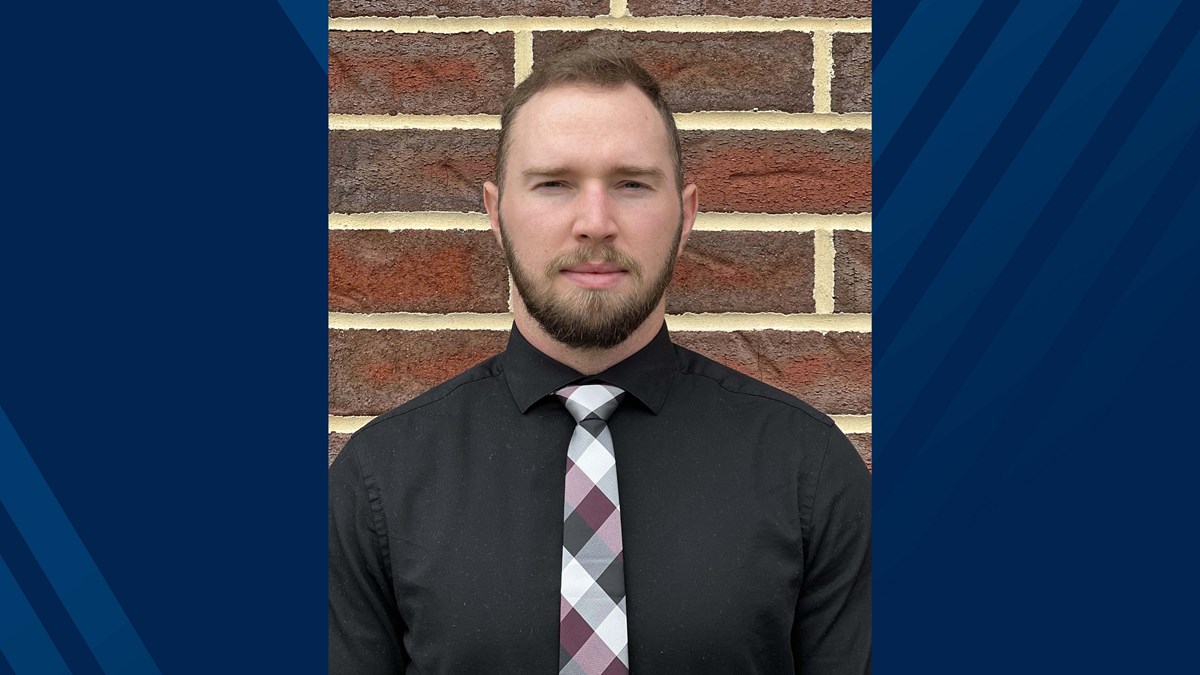Charles McCool

“The clinical experience that we gain through the athletic training program is phenomenal. We get to spend a substantial amount of time interacting directly with patients one-on-one.”
McCool will graduate with the university's last cohort of Bachelor of Science in Athletic Training students in May of 2023. To learn more about our MSAT program, visit medicine.wvu.edu/athletic-training/admission/.
How did you decide on athletic training as a major?
I was heavily involved in sports throughout middle school and high school. In high school, I started getting interested in the healthcare side of athletics. I decided athletic training was a great way to bring together my two passions.
Why did you choose to attend WVU?
I grew up in West Virginia. I’ve always admired the beauty of this state and have been a huge fan of WVU sports. After I came here for my tour, I knew WVU was where I wanted to be.
How does the WVU athletic training program help prepare students for a career in the medical field?
The clinical experience that we gain through the athletic training program is phenomenal. We spend a substantial amount of time interacting directly with patients one-on-one. We’re also able to learn a variety of hands-on techniques through evaluation and rehabilitation standpoints that prepare us for a career in the medical field.
What is one of your favorite training opportunities you have participated in as a student in the athletic training program?
I recently attended the Falmouth Road Race in Falmouth, Massachusetts. The road race was a great opportunity to get hands-on experience treating heat illnesses.
What made you decide to attend the Falmouth Road Race?
I decided to attend Falmouth because it offered an in-depth field experience in track, which I was unfamiliar with at the time. By attending, I broadened my knowledge and improved my hands-on technical and critical decision-making skills.
What kind of conditions did you see and help treat at the race?
At Falmouth, we saw a multitude of different injuries and illnesses, primarily orthopedic injuries and exertional heat illnesses. We were able to watch the athletes go across the finish line, and as they were walking, you could see the signs and symptoms of exertional heat illness. It was great to be able to pick that up right away, and we knew to get them into more of a shaded area and get a rectal temperature. If their temperature were above 104 degrees Fahrenheit, then we would confirm that it was an exertional heat stroke. Then, we would submerge them in an ice bath to get their body temperature back down.
Was this different from your prior clinical experience?
The road race was very different from many of the clinical experiences I’ve had at the School of Medicine. Personally, I haven’t seen too many exertional heat illnesses during my clinical rotations, so this was a great opportunity for me to get that hands-on experience. Exertional heat illness can be pretty common at sporting events, so being able to respond and treat a few cases at the race was a very valuable training experience for me. I felt nervous at first, but once the race started, I felt like I was fully prepared to start helping.
How do you think that your classroom experiences helped prepare you to respond to exertional heat illness cases?
I thought everything we learned in the classroom correlated directly with our clinical experiences. We have practiced these emergency situations such as exertional heat illness, cardiac arrests, and spine boarding in the classroom. I was ready and I felt like I had done it before.
What is it like getting research and lab experience as an undergraduate student?
It adds to the classroom and the clinical background. Working as a research assistant, I have been able to gain an abundance of knowledge on the policy side of athletic training. I feel like once I graduate and am working on my own, I could really just jump in and know what I’m doing.
You have decided to go to medical school following graduation. Do you feel confident that what you have learned in the Athletic Training program has prepared you for medical school?
I feel very confident that my undergraduate education has prepared me for medical school. Being exposed to patient care, physical evaluations and working directly under physicians will be paramount in my future education and career.